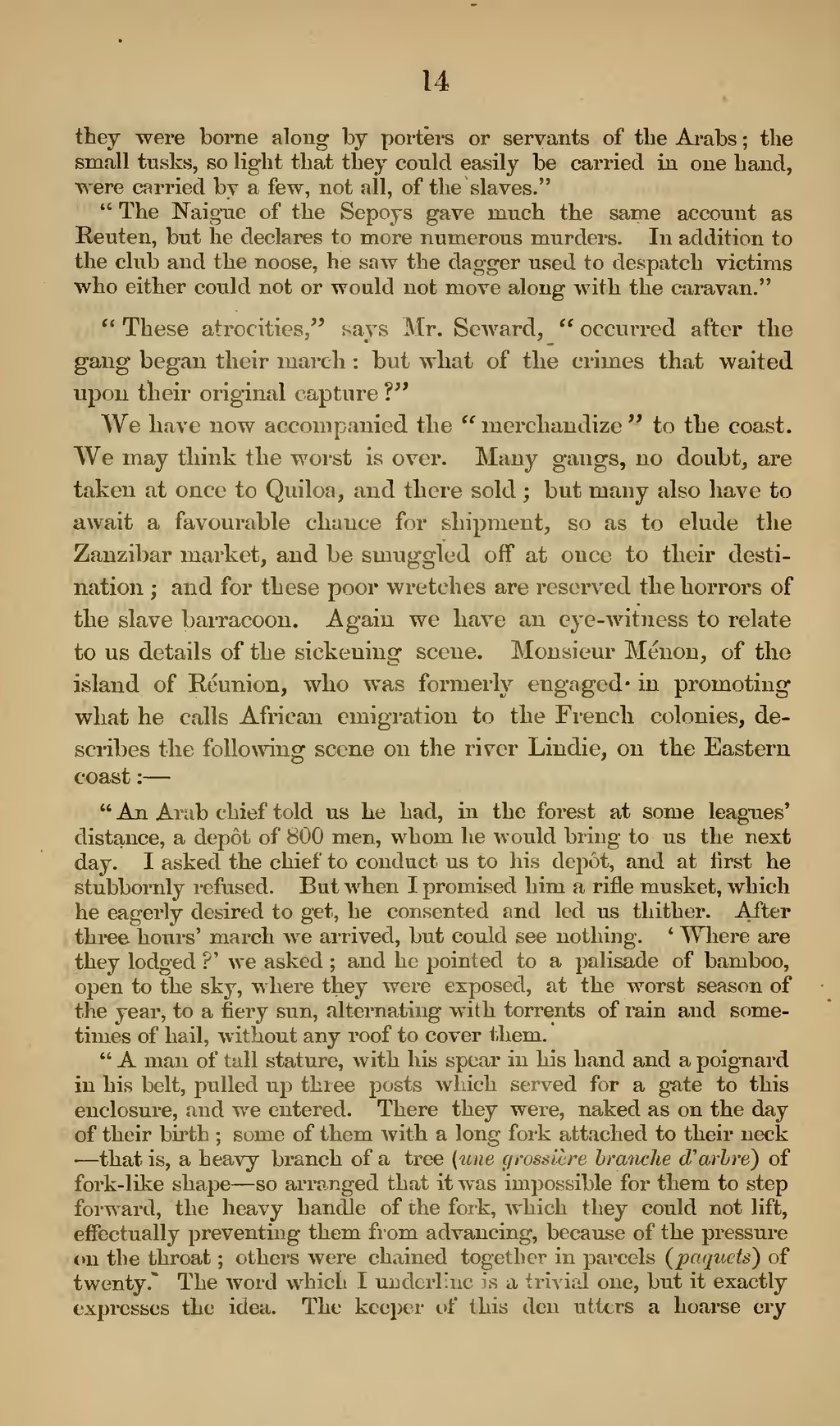14
they were borne along by porters or servants of the Arabs; the small tusks, so light that they could easily be carried in one hand, were carried by a few, not all, of the slaves."
"The Naigue of the Sepoys gave much the same account as Reuten, but he declares to more numerous murders. In addition to the club and the noose, he saw the dagger used to despatch victims who either could not or would not move along with the caravan."
"These atrocities," says Mr. Seward, "occurred after the gang began their march: but what of the crimes that waited upon their original capture?"
We have now accompanied the "merchandize" to the coast. We may think the worst is over. Many gangs, no doubt, are taken at once to Quiloa, and there sold; but many also have to await a favourable chance for shipment, so as to elude the Zanzibar market, and be smuggled off at once to their destination; and for these poor wretches are reserved the horrors of the slave barracoon. Again we have an eye-witness to relate to us details of the sickening scene. Monsieur Ménon, of the island of Rếunion, who was formerly engaged in promoting what he calls African emigration to the French colonies, describes the following scene on the river Lindie, on the Eastern coast:—
" An Arab chief told us he had, in the forest at some leagues' distance, a depôt of 800 men, whom he would bring to us the next day. I asked the chief to conduct us to his depôt, and at first he stubbornly refused. But then I promised him a rifle musket, which he eagerly desired to get, he consented and led us thither. After three hours' march we arrived, but could see nothing. 'Where are they lodged?' we asked; and he pointed to a palisade of bamboo, open to the sky, where they were exposed, at the worst season of the year, to a fiery sun, alternating with torrents of rain and sometimes of hail, without any roof to cover them.
"A man of tall stature, with his spear in his hand and a poignard in his belt, pulled up three posts which served for a gate to this enclosure, and we entered. There they were, naked as on the day of their birth; some of them with a long fork attached to their neck—that is, a heavy branch of a tree (une grossière branche d'arbre) of fork-like shape—so arranged that it was impossible for them to step forward, the heavy handle of the fork, which they could not lift, effectually preventing them from advancing, because of the pressure on the throat; others were chained together in parcels (paquets) of twenty." The word which I underline is a trivial one, but it exactly expresses the idea. The keeper of this den utters a hoarse cry
